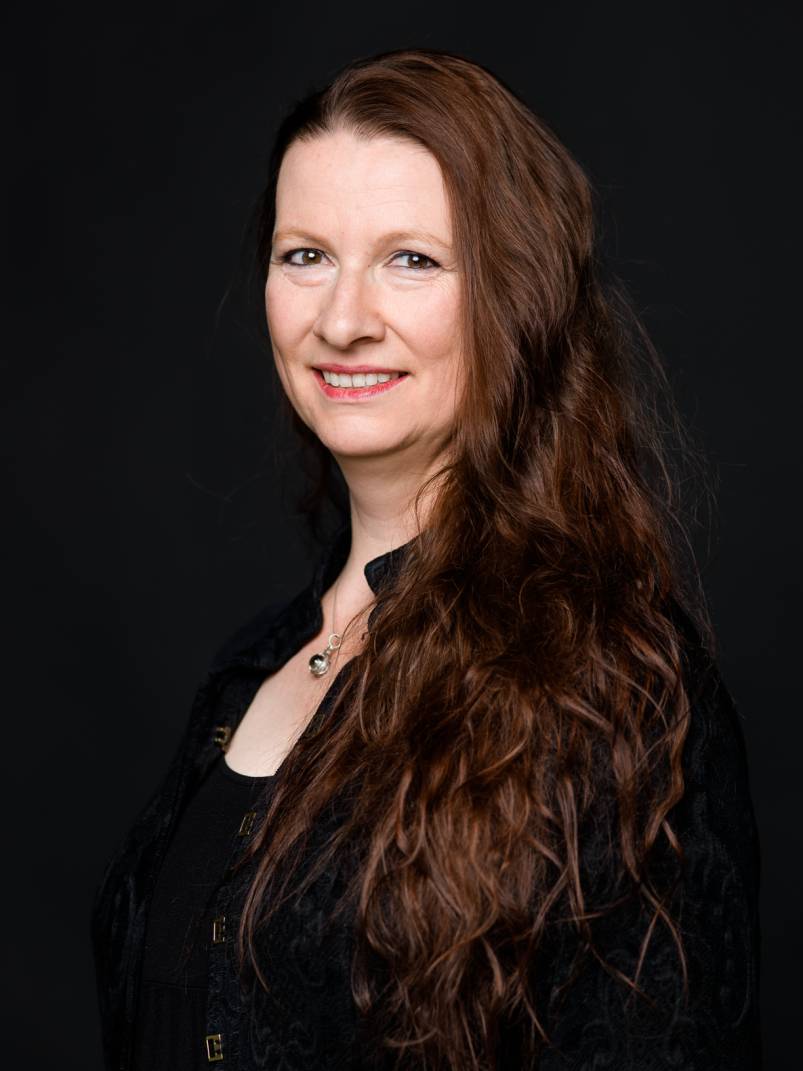Inspired by medieval genius, the female solo vocalists making up Mora Vocis tread the path of this centuries-old music but with a modern focus.
With over two decades of dedication in total collegiality, they have embodied the sacred repertoires of the Middle Ages. Today, they are creating a very personal poetic space with it. In 2011, Mora Vocis took a new tangent when singer Els Janssens-Vanmunster became its artistic director, sharing the load with singer and composer Caroline Marçot.
From the outset, the ensemble has always put on geometrically variable performances. Focusing on the body – the voice’s instrument – Mora Vocis sometimes invite circus artists and dance choreographers to join their performance. In recent years, the ensemble has added secular music to its repertoire and has included actors and instrumentalists in certain shows.
Performing by heart and staging concerts tailored to each location are essential and subtle differences; they have set Mora Vocis apart in this field of early and contemporary music. Prompting real interaction between the artists, the ensemble uses the architecture of a location and its acoustics. Its very masonry winds up being integrated in the vocal and acrobatic spirals of the artists. Each performance by Mora Vocis in an old, modern, or simply unusual building, becomes a journey into a dreamland.
When Mora Vocis became “Mora Vocis – voix solistes au féminin”, the ensemble naturally shifted its focus to music written by women and for women, whether medieval or contemporary. As a matter of fact, quite a few composers today – male and female – have become smitten with medieval thought. And so, when the poetry of Hildegard von Bingen or a Gregorian melody inspire new creations, Mora Vocis is always delighted to perform the work with the same artistic rigor deployed for their medieval repertoire. Among the composers you will find Petr Eben (Czech Republic), Ivan Moody (United Kingdom), and Klaus Huber (Switzerland). Some have even specifically written pieces for the singers of Mora Vocis. These include Anne-Marie Deschamps, Jean-Jacques Di Tucci, Daniel Meier, and more recently, Sophie Lacaze, David Eskenazy, and Caroline Marçot.
In 2015, for Mater Dolorosa – Femmes au Tombeau (composed by Caroline Marçot), Mora Vocis was given the label La Ffabrique Nomade at the initiative of France Festivals in its partnership with the Sacem and the Onda. Mora Vocis has always had a penchant for musical research. In 2009, their first collaboration with researchers from the Université Paul Valéry Montpellier resulted in the creation of a show devoted to medieval motet with a special focus on Manuscript H196, also called the “Montpellier manuscript”. Mora Vocis and the Centre des Études Médiévales de Montpellier (CEMM) have continued their collaboration. Mora Vocis was in residence at the Université Paul Valéry in Montpellier from 2011 to 2014 to work on the Torino J.II.9 manuscript, known as the “manuscript from Cyprus”.
As for recordings, Mora Vocis – voix solistes au féminin now has 6 CDs. One is a recording of the music from Régine Chopinot’s dance show Saint Georges. Their sole DVD, Motet (2011), is a joint effort with the Université Paul Valéry in Montpellier. In 2013, Mora Vocis recorded Le Grand Voyage, a theater piece staged by the Tour du Cadran theater company. And in 2016, the ensemble’s album Mater Dolorosa – Femmes au Tombeau will be released in our new Live Snapshot Collection in collaboration with the Ffabrique Nomade. This program will be also recorded as a CD in 2017.

